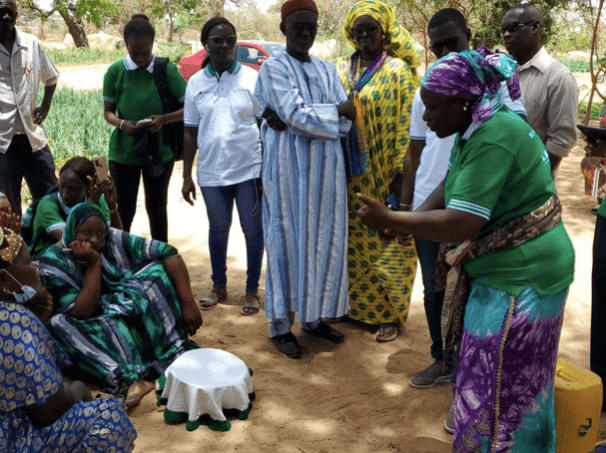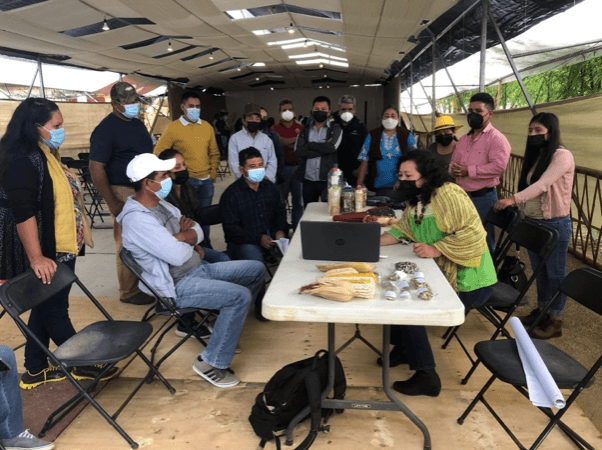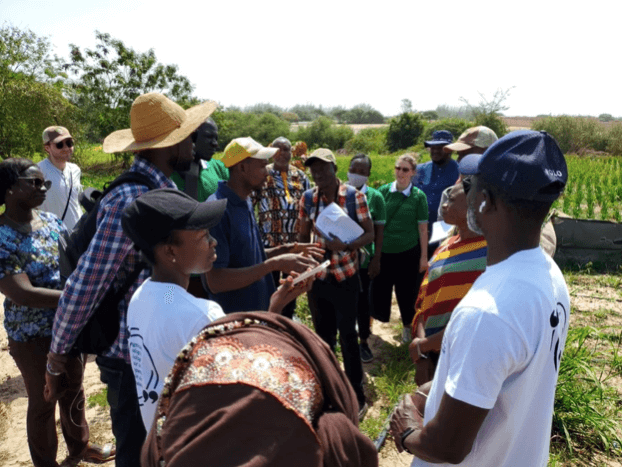Report from the Field: Senegal & Mexico
By: Ethan Scully
If you’d asked me a few months ago – “What do Oaxaca, Mexico, and Thiès, Senegal, have in common?” – I might have assumed it was a trick question. What could these North American and West African regions, which speak different languages and are located on opposite sides of the globe, possibly share with each other? Now, thanks to the generosity of our in-country partners and the small farmers they support, I can begin to tell you.
I joined Groundswell in October 2020, and ever since then, I’d been waiting for a chance to see just one of our programs in action. Now, in the span of two months, I’ve had the opportunity to see two!
At the end of May 2021, Steve Brescia, Christopher Sacco, and I traveled to Thiès for Groundswell West Africa’s Regional Conference and to meet with our colleagues from Burkina Faso, Mali, Ghana, and, of course, Senegal. With Agrécol Afrique hosting, Groundswell’s West Africa network partners had an invaluable opportunity to meet and share lessons, experiences, and results from the various programs they’d been implementing over the past year, while also discussing plans for years to come. Having studied French for a couple of years and spending a semester in France during college, I was excited to be putting it to use again and felt comfortable despite the fact I was on an entirely new continent.

After two days in the conference room, it was finally time to go out into the field and see everything that, until then, I’d only been able to see on paper. Over the next three days, Agrécol took all of us to agroecological market gardens, a processing facility, and a restaurant, all owned and operated by women’s savings and credit groups, who, with Agrécol’s aid were inspired to come together and make better lives for themselves and their families. What I saw in the field made it clear this type of food system truly supports and uplifts those who labor, as well as the environment.
Almost a month later, Steve and I were off again, this time to Oaxaca to attend the closing meeting of Catalyzing Resilient Farmer Seed Systems in Mexico, a project carried out by eight organizations across three Mexican states, with the support of the WK Kellogg Foundation. Here, the various farmers and organizations involved would come together to exchange knowledge and lessons learned throughout the project’s duration.

Now, if I said I was comfortable in Senegal because of my French, let me just say it was the complete opposite in Mexico. I started taking Spanish lessons about 3 months ago, and the thought of having to speak it with anybody other than my tutor was, shall we say, disconcerting. Imagine how I felt when on my first night there, my colleague, Groundswell’s Regional Coordinator for Latin America and the Caribbean, Edwin Escoto told me I would be taking an hour-long bus ride to Nochixtlan at 6:00 in the morning to tag along on some farm visits to get the farmers’ thoughts on how the project went and their hopes for the future.
That didn’t exactly put my fears to rest, but as soon as I hopped off the bus, I was made to feel at home by my colleagues at Centro de Desarrollo Integral Campesino de la Mixteca (CEDICAM), who encouraged me to stumble through half-broken Spanish sentences over breakfast, just like the amazing hosts they are. If there’s one thing I’ll take away from this trip, it will be the amazing hospitality I was shown by everyone who was kind enough to welcome me into their home or serve me a hot meal.
Throughout the rest of the week, now with Steve and Edwin there to translate for me, we were able to witness extremely powerful conversations between farmers from across the country living in similarly harsh conditions, all turning to agroecology as a means to reclaim cultural traditions and secure their future economic and food security. It was astounding to see everything they’d accomplished over the past three years and extremely encouraging to hear about what they already had planned for the future.
Now to return to the original question – “What do Thiès, Senegal, and Oaxaca, Mexico, have in common?” To me, the answer is as clear as a glass of Mezcal, something I was also lucky enough to share with my hosts in Oaxaca. The farmers I met in both regions have an overwhelming sense of solidarity and loyalty, not only with other members of their respective communities, but also with the land they cultivate, and industrial agricultural systems have completely ignored these two basic building blocks of a healthy food system.

I believe this speaks to why agroecology is often seen as such a desirable alternative for rural communities aiming to reclaim their sense of autonomy from external actors directly or indirectly destroying their land and cultural heritage in exchange for short-term profits. As intersecting environmental and economic crises continue to impact communities living at the frontlines of climate change, we must remember that those best positioned to design and implement solutions are often the ones who are impacted by them on a daily basis. I’ve been fortunate enough to witness this truth firsthand, and it’s part of my work with Groundswell to share this as far and wide as possible, and I look forward to doing so with the help of my colleagues and our network partners around the world.
